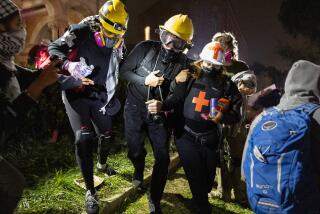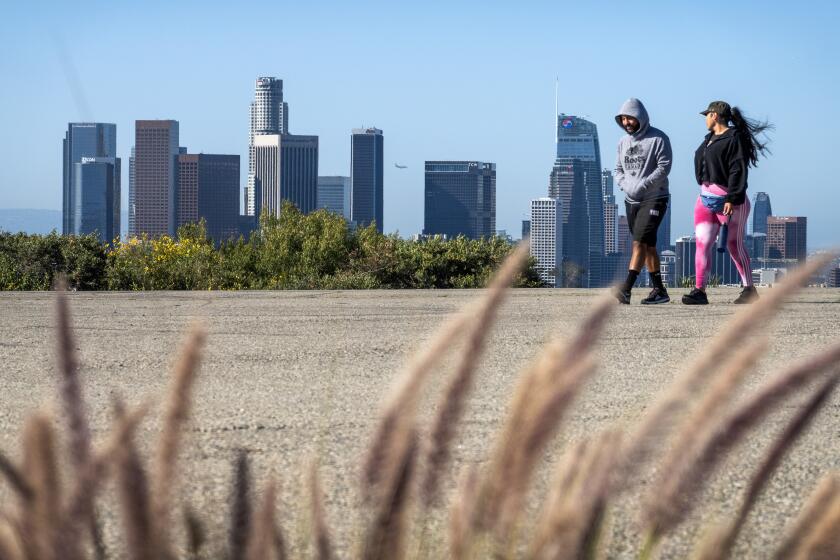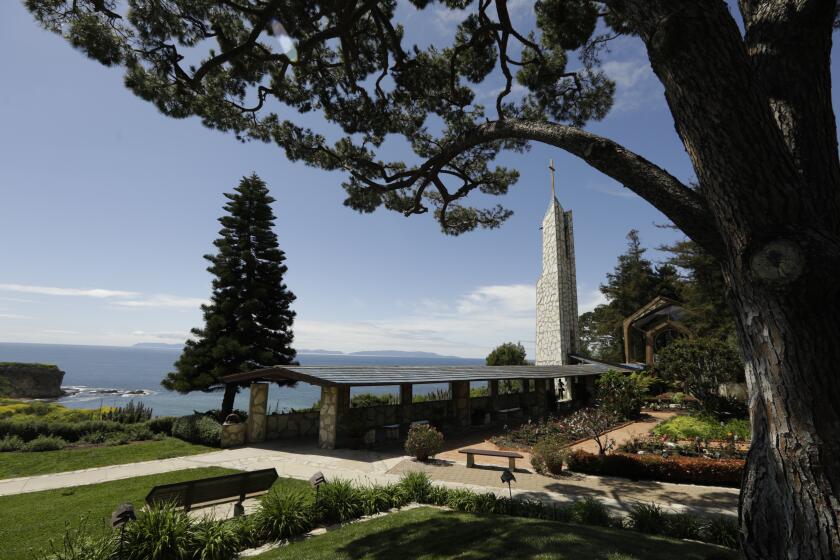Here’s a Useful Reform: More Police on the Streets : LAPD:The confusion during the riot is merely a taste of what political tinkering can do.
On June 2, the citizens of Los Angeles will have an opportunity to prevent the political forces in the city from taking away the traditional independence of the Los Angeles Police Department and replacing it with direct control by the mayor and the City Council. Under the guise of “reform,” the politicians have taken the 134 recommendations offered by the Christopher Commission and reduced them to a ballot measure that is full of fine print and barely scratches the surface of true reform.
Probably the best example of political interference in police matters is City Councilman Mark Ridley-Thomas’s extraordinary meeting with deputy chiefs Matthew Hunt and Bernard Parks two days before the outbreak of civil unrest. On Monday, April 27, Ridley-Thomas and several other civil-rights and community activists met with Hunt and Parks expressly to prevent the police from using any force to quell a potential outbreak. Ridley-Thomas’s own account of that meeting confirms this. He said, “Our instructions to the police were essentially this: Don’t contribute to the crisis . . . a display of force would precipitate rather than defuse the situation.”
The result of that political interference is evident in the appalling statistics of the lives lost, fires, property damage and the psychological impact on every Los Angeles citizen. Miscommunication at the command level of the LAPD and the sinister creation of a circumventing “back channel” from the politicians to the police command level directly under Chief of Police Daryl F. Gates contributed to the paralysis in the decision-making process, particularly in the initial hours of the crisis.
Gates and his command staff have to answer for their own performance, but the second-guessing that’s occurring among police personnel is hampering their effectiveness and hurting the morale of the rank and file and damaging the public’s sense of security.
Gun shops have been overrun with citizens purchasing weapons for their safety because their confidence in the police is at an all-time low. Police-bashing may be an exercise in freedom of speech, but responsible editorialists and civil libertarians must share the blame in helping to foster this crisis of confidence and for encouraging politicians to make demands of the police command through unofficial channels.
The coalescing of the street gangs, preparatory to taking on the police, is by far the most significant sociological event to emerge from the riots. When Rep. Maxine Waters (D-Los Angeles) irresponsibly and incorrectly crows that “the black community and the LAPD are at war,” only the gangs seem to have taken up her charge. The average black citizen of South Los Angeles just wants the police to do their job in a fair and impartial manner. The fact that the LAPD is nearly 40% minority (Latino, African-American and Asian-American), is conveniently ignored by politicians like Waters, who continually stir the pot by characterizing the entire department as racist.
Putting the police under the political control of Mayor Tom Bradley and the City Council will do nothing to improve the effectiveness of the police force or prevent a recurrence of the Rodney King tragedy. Bradley himself said on May 1, after the worst night of the riots, that he still intends to cut the police force by 700 officers. The mayor still doesn’t comprehend that the National Guard, the Marines and various other state and federal law-enforcement agencies were needed because the number of police was inadequate.
With only 2.3 officers for every 1,000 residents, the LAPD has the fewest police per capita of the 10 largest U.S. cities. The measure on the ballot is of no help in correcting this.
Police Chief-designate Willie L. Williams has worked with much better per-capita coverage and clearly appreciates its importance. We look forward to working with him on the most basic, most necessary reform: increasing the number of police to levels consistent with national standards.
More to Read
Start your day right
Sign up for Essential California for news, features and recommendations from the L.A. Times and beyond in your inbox six days a week.
You may occasionally receive promotional content from the Los Angeles Times.






